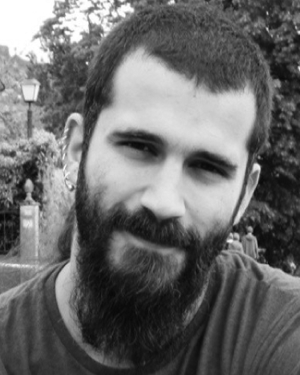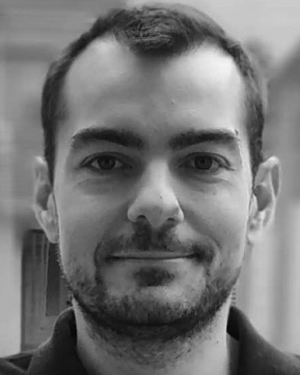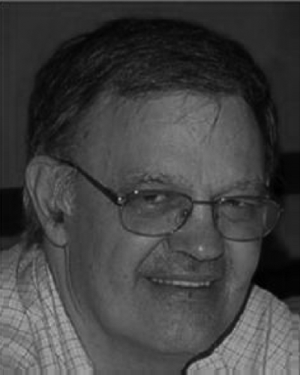Abstract:
Researchers and teachers around the world have created newsoftware and hardware to develop, reuse, and deploy online laboratories (labs). However, due to the nature of la...Show MoreMetadata
Abstract:
Researchers and teachers around the world have created newsoftware and hardware to develop, reuse, and deploy online laboratories (labs). However, due to the nature of labs, most of the available solutions depend greatly on where and how online labs can be used in the first place. Thus, there have been multiple design solutions and great technology combinations. In this study, we analyzed and studied the main obstacles in the online lab development and the alternatives of the technologies, means, methodologies, and approaches on creating online labs. The resulting analysis showed the advantages, disadvantages, and problems of each key component and attempted to explore the working combinations that ensure the usability, modularity, universality, accessibility, and reliability of online labs. In addition, we explored a general solution to take advantage of the benefits of the technologies involved in online labs and to fix or reduce the impacts of the arising problems when developing and deploying online labs.
Published in: IEEE Transactions on Learning Technologies ( Volume: 14, Issue: 6, 01 December 2021)
Funding Agency:

Department of Computer Science and Automatic Control, Universidad Nacional de Educación a Distancia, Madrid, Spain
Jacobo Sáenz received the M.Sc. degree in physics from the Universidad Complutense de Madrid, Madrid, Spain, in 2013, and the Ph.D. degree in computer science from the Universidad Nacional de Educación a Distancia (UNED), Madrid, in 2019.
He is currently an Assistant Professor with the Department of Computer Science and Automatic Control, UNED. His research interests include online laboratory development, control engineeri...Show More
Jacobo Sáenz received the M.Sc. degree in physics from the Universidad Complutense de Madrid, Madrid, Spain, in 2013, and the Ph.D. degree in computer science from the Universidad Nacional de Educación a Distancia (UNED), Madrid, in 2019.
He is currently an Assistant Professor with the Department of Computer Science and Automatic Control, UNED. His research interests include online laboratory development, control engineeri...View more

Department of Computer Science and Automatic Control, Universidad Nacional de Educación a Distancia, Madrid, Spain
Luis de la Torre received the M.Sc. degree in physics from the Universidad Complutense de Madrid, Madrid, Spain, in 2008, and the Ph.D. degree in computer science from the Universidad Nacional de Educación a Distancia (UNED), Madrid, in 2013.
He is currently a Professor with the Department of Computer Science and Automatic Control, UNED. He has previously been a Visiting Scholar with Stanford University, Stanford, CA, USA,...Show More
Luis de la Torre received the M.Sc. degree in physics from the Universidad Complutense de Madrid, Madrid, Spain, in 2008, and the Ph.D. degree in computer science from the Universidad Nacional de Educación a Distancia (UNED), Madrid, in 2013.
He is currently a Professor with the Department of Computer Science and Automatic Control, UNED. He has previously been a Visiting Scholar with Stanford University, Stanford, CA, USA,...View more

Department of Computer Architecture and Automatic Control, Universidad Complutense de Madrid, Madrid, Spain
Jesús Chacón received the M.Sc. degree in automation and industrial electronics engineering from the Universidad de Córdoba, Córdoba, Spain, in 2009, and the Ph.D. degree in control and systems engineering from the Universidad Nacional de Educación a Distancia, Madrid, Spain, in 2014.
He is currently an Assistant Professor with the Department of Computer Architecture and Automatic Control, Universidad Complutense de Madrid...Show More
Jesús Chacón received the M.Sc. degree in automation and industrial electronics engineering from the Universidad de Córdoba, Córdoba, Spain, in 2009, and the Ph.D. degree in control and systems engineering from the Universidad Nacional de Educación a Distancia, Madrid, Spain, in 2014.
He is currently an Assistant Professor with the Department of Computer Architecture and Automatic Control, Universidad Complutense de Madrid...View more

Department of Computer Science and Automatic Control, Universidad Nacional de Educación a Distancia, Madrid, Spain
Sebastián Dormido received the B.S. degree in physics from the Universidad Complutense de Madrid, Madrid, Spain, in 1968, and the Ph.D. degree in science from the Universidad del País Vasco, Bilbao, Spain, in 1971. Since 1981, he has been a Professor of Control Engineering with the Universidad Nacional de Educación a Distancia, Madrid.
He has authored or coauthored more than 350 technical papers in international journals a...Show More
Sebastián Dormido received the B.S. degree in physics from the Universidad Complutense de Madrid, Madrid, Spain, in 1968, and the Ph.D. degree in science from the Universidad del País Vasco, Bilbao, Spain, in 1971. Since 1981, he has been a Professor of Control Engineering with the Universidad Nacional de Educación a Distancia, Madrid.
He has authored or coauthored more than 350 technical papers in international journals a...View more

Department of Computer Science and Automatic Control, Universidad Nacional de Educación a Distancia, Madrid, Spain
Jacobo Sáenz received the M.Sc. degree in physics from the Universidad Complutense de Madrid, Madrid, Spain, in 2013, and the Ph.D. degree in computer science from the Universidad Nacional de Educación a Distancia (UNED), Madrid, in 2019.
He is currently an Assistant Professor with the Department of Computer Science and Automatic Control, UNED. His research interests include online laboratory development, control engineering, robotics, and heuristic algorithms.
Jacobo Sáenz received the M.Sc. degree in physics from the Universidad Complutense de Madrid, Madrid, Spain, in 2013, and the Ph.D. degree in computer science from the Universidad Nacional de Educación a Distancia (UNED), Madrid, in 2019.
He is currently an Assistant Professor with the Department of Computer Science and Automatic Control, UNED. His research interests include online laboratory development, control engineering, robotics, and heuristic algorithms.View more

Department of Computer Science and Automatic Control, Universidad Nacional de Educación a Distancia, Madrid, Spain
Luis de la Torre received the M.Sc. degree in physics from the Universidad Complutense de Madrid, Madrid, Spain, in 2008, and the Ph.D. degree in computer science from the Universidad Nacional de Educación a Distancia (UNED), Madrid, in 2013.
He is currently a Professor with the Department of Computer Science and Automatic Control, UNED. He has previously been a Visiting Scholar with Stanford University, Stanford, CA, USA, and the Swiss Federal Institute of Technology, Lausanne, Switzerland. He has authored or coauthored more than 20 articles in international journals. His research interests include virtual and remote laboratories, distance education, HTTP protocols, and technologies for networked control systems using event-based techniques.
Luis de la Torre received the M.Sc. degree in physics from the Universidad Complutense de Madrid, Madrid, Spain, in 2008, and the Ph.D. degree in computer science from the Universidad Nacional de Educación a Distancia (UNED), Madrid, in 2013.
He is currently a Professor with the Department of Computer Science and Automatic Control, UNED. He has previously been a Visiting Scholar with Stanford University, Stanford, CA, USA, and the Swiss Federal Institute of Technology, Lausanne, Switzerland. He has authored or coauthored more than 20 articles in international journals. His research interests include virtual and remote laboratories, distance education, HTTP protocols, and technologies for networked control systems using event-based techniques.View more

Department of Computer Architecture and Automatic Control, Universidad Complutense de Madrid, Madrid, Spain
Jesús Chacón received the M.Sc. degree in automation and industrial electronics engineering from the Universidad de Córdoba, Córdoba, Spain, in 2009, and the Ph.D. degree in control and systems engineering from the Universidad Nacional de Educación a Distancia, Madrid, Spain, in 2014.
He is currently an Assistant Professor with the Department of Computer Architecture and Automatic Control, Universidad Complutense de Madrid, Madrid. His research interests include simulation and control of event-based systems, communication protocols, and control engineering education.
Jesús Chacón received the M.Sc. degree in automation and industrial electronics engineering from the Universidad de Córdoba, Córdoba, Spain, in 2009, and the Ph.D. degree in control and systems engineering from the Universidad Nacional de Educación a Distancia, Madrid, Spain, in 2014.
He is currently an Assistant Professor with the Department of Computer Architecture and Automatic Control, Universidad Complutense de Madrid, Madrid. His research interests include simulation and control of event-based systems, communication protocols, and control engineering education.View more

Department of Computer Science and Automatic Control, Universidad Nacional de Educación a Distancia, Madrid, Spain
Sebastián Dormido received the B.S. degree in physics from the Universidad Complutense de Madrid, Madrid, Spain, in 1968, and the Ph.D. degree in science from the Universidad del País Vasco, Bilbao, Spain, in 1971. Since 1981, he has been a Professor of Control Engineering with the Universidad Nacional de Educación a Distancia, Madrid.
He has authored or coauthored more than 350 technical papers in international journals and conference proceedings and has supervised 38 Ph.D. dissertations. His research interests include computer control of industrial processes, model-predictive control, hybrid control, and web-based laboratories for distance education.
Dr. Dormido was the President of the Spanish Association of Automatic Control (CEA), part of the International Federation of Automatic Control (IFAC), from 2001 to 2006. He was the recipient of the IFAC National Automatic Control Prize from the CEA in 2008 and the IFAC Control Education Lifetime Achievement Award in 2019. He received Honorary Doctorates from the Universidad de Huelva, Huelva, Spain, and the Universidad de Almería, Almería, Spain, in 2007 and 2014, respectively.
Sebastián Dormido received the B.S. degree in physics from the Universidad Complutense de Madrid, Madrid, Spain, in 1968, and the Ph.D. degree in science from the Universidad del País Vasco, Bilbao, Spain, in 1971. Since 1981, he has been a Professor of Control Engineering with the Universidad Nacional de Educación a Distancia, Madrid.
He has authored or coauthored more than 350 technical papers in international journals and conference proceedings and has supervised 38 Ph.D. dissertations. His research interests include computer control of industrial processes, model-predictive control, hybrid control, and web-based laboratories for distance education.
Dr. Dormido was the President of the Spanish Association of Automatic Control (CEA), part of the International Federation of Automatic Control (IFAC), from 2001 to 2006. He was the recipient of the IFAC National Automatic Control Prize from the CEA in 2008 and the IFAC Control Education Lifetime Achievement Award in 2019. He received Honorary Doctorates from the Universidad de Huelva, Huelva, Spain, and the Universidad de Almería, Almería, Spain, in 2007 and 2014, respectively.View more


